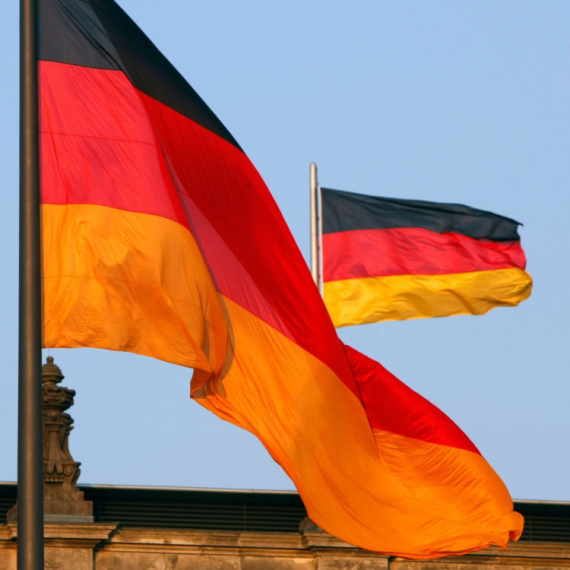Jeremić presents ICJ plan to Berlin
Vuk Jeremić has informed Berlin of Serbia’s initiative before the ICJ and Serbia’s position on the Kosovo question.
Friday, 05.09.2008.
08:37

Vuk Jeremic has informed Berlin of Serbia’s initiative before the ICJ and Serbia’s position on the Kosovo question. Jeremic conveyed Belgrade’s official expectations that Germany would not oppose the motion at the International Court of Justice (ICJ). Jeremic presents ICJ plan to Berlin In a statement to the press, German Foreign Minister Frank Walter Steinmeier said that resolving the Kosovo question was an important element on Serbia’s path to the EU. “And Serbia must also, like us in the EU, have an interest that stability should reign in Kosovo,“ said Steinmeier, underlining the importance of the EU mission to the province. German media reported that Jeremic deemed the controversy of Kosovo’s international legal status as being the most thorny issue in German-Serbian relations. “The (German) federal government has recognized Kosovo’s independence. Serbia will not do so,“ the Serbian foreign minister stressed. Jeremic finished his visit on this note, having received assurances from German officials that Berlin would firmly support Serbia’s EU integration, including the first step on that path—unfreezing of the transitional agreement with the EU. After talks with his German partners, including Chancellor Angela Merkel's foreign policy adviser, he stated that the differences between the two countries over the Kosovo issue remained as before. Earlier, Steinmeier said his country would continue to support Serbia on its path toward the EU. "Germany will formulate its stance on this over the next few weeks, but we have recognized an independent Kosovo, and we would not have done that had we believed that decision ran counter to international law," Steinmeier told journalists. The German minister said that "the moment had come for Serbia to look forward to the future, not only backwards" and to reward the pro-European powers in Serbia for the “courage”, as he put it, that they had displayed in the election campaign and during talks on forming a new government. Jeremic thanked Germany for its support and emphasized that Belgrade had continued dialogue with Germany, as well as with other countries that had recognized Kosovo, over the last few months. He stressed that the decision Serbia was seeking from the International Court of Justice on the legality of Kosovo's independence was not a procedure against any one country, and especially not against those countries that Serbia wished to move closer to. "Stability in the Balkans is a condition for fulfilling Serbia's strategic aim, and that is entry into the European Union. Today's [Sept. 4] talks in Berlin have brought us closer to that," said Jeremic.
Jeremić presents ICJ plan to Berlin
In a statement to the press, German Foreign Minister Frank Walter Steinmeier said that resolving the Kosovo question was an important element on Serbia’s path to the EU.“And Serbia must also, like us in the EU, have an interest that stability should reign in Kosovo,“ said Steinmeier, underlining the importance of the EU mission to the province.
German media reported that Jeremić deemed the controversy of Kosovo’s international legal status as being the most thorny issue in German-Serbian relations.
“The (German) federal government has recognized Kosovo’s independence. Serbia will not do so,“ the Serbian foreign minister stressed.
Jeremić finished his visit on this note, having received assurances from German officials that Berlin would firmly support Serbia’s EU integration, including the first step on that path—unfreezing of the transitional agreement with the EU.
After talks with his German partners, including Chancellor Angela Merkel's foreign policy adviser, he stated that the differences between the two countries over the Kosovo issue remained as before.
Earlier, Steinmeier said his country would continue to support Serbia on its path toward the EU.
"Germany will formulate its stance on this over the next few weeks, but we have recognized an independent Kosovo, and we would not have done that had we believed that decision ran counter to international law," Steinmeier told journalists.
The German minister said that "the moment had come for Serbia to look forward to the future, not only backwards" and to reward the pro-European powers in Serbia for the “courage”, as he put it, that they had displayed in the election campaign and during talks on forming a new government.
Jeremić thanked Germany for its support and emphasized that Belgrade had continued dialogue with Germany, as well as with other countries that had recognized Kosovo, over the last few months.
He stressed that the decision Serbia was seeking from the International Court of Justice on the legality of Kosovo's independence was not a procedure against any one country, and especially not against those countries that Serbia wished to move closer to.
"Stability in the Balkans is a condition for fulfilling Serbia's strategic aim, and that is entry into the European Union. Today's [Sept. 4] talks in Berlin have brought us closer to that," said Jeremić.











































Komentari 9
Pogledaj komentare